
Learning a new language is an essential part of today’s life. However, it can also be challenging. You cannot ignore the tremendous input authors have in helping those trying to learn a new language. Various authors have written language learning books to show learners the big picture and help them with the process. These books are particularly handy for those with no substantial resources for actual linguistic classes.
The books have fundamental learning approaches, tools, techniques, and insights crucial for learning a new language. This article highlights some of the best books you can get your hands on to make your linguistic journey easier.
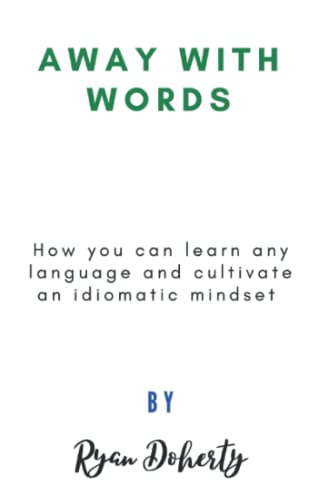
Away with Words, by Ryan Doherty
This book is for you if you are looking to develop the required mindset for mastering a foreign language. You will not have to memorize long word lists, and you will get to learn while having fun.
For many, learning a new language proves to be incredibly challenging. What’s more, many English speakers have tried it with no success. Thinking about the classes makes many to shudder.
But this book will show you that many of the ideologies surrounding language learning are not entirely true.
The book unravels all the myths people have toward learning a new language. That’s why it will be significant for your journey, changing your mindset and inspiring you to commit.
It highlights why you may think learning is complex, why children learn quickly, and how to go about learning. It has five proven ways to help you build your knowledge for a particular language and depicts the best approach to master your vocabulary for long-term use.
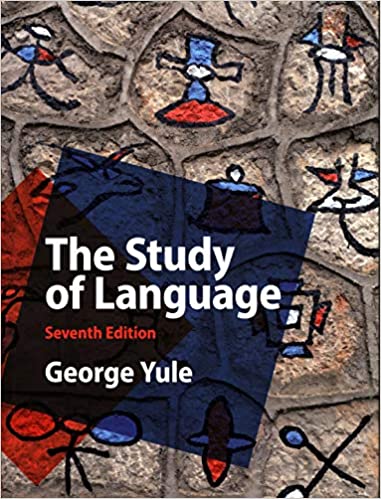
The Study of Language, by George Yule
The Study of Language (7th edition) provides a captivating and user-friendly introduction to language study. The author has broken down the information into bite-sized sections that will be particularly handy. You will not feel overwhelmed.
George explains major linguistic concepts and every key language element in this seventh edition. It has substantial changes to the previous entries, primarily phonetics and semantics and various study questions.
There are new tests to enhance a learner’s engagement. The employed tasks are also handy for fostering critical thinking and problem-solving skills.
The book also features engaging tutorial activities, illustrative examples and offers accessible explanations to give you a lively and proactive approach. Proactive learning is the most fundamental entity to learning a language.
Even if you are not a native English speaker, you do not have to worry because the style has been made accessible.
This book is ideal for anyone with a general interest to learn a new language as well as new language practitioners.
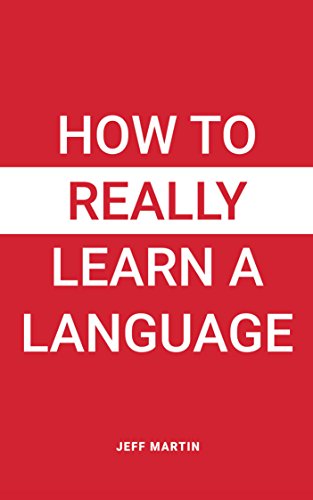
How to Really Learn a Language, by Jeff Martin
Are you the kind of person who feels like you are no good when it comes to language learning? Or, have you invested money in classes, courses, and language learning apps that haven’t helped you? There are many like you and mainly because of the wrong belief.
This book is meant to change your mind. The author’s philosophy is simple. The journey of learning a new language shouldn’t be a mystery. After all, we naturally learn a new language initially- our native language. So, why should becoming bilingual be such a mystery?
If anything, learning a second language should be easier than how we learned our very first language. The main hindrance is usually the approach employed. That is what makes many not end up getting fluent.
However, this book will open up your mind to see that all that you need to learn a new language is in your hands and within you. The experience you had with your first language is also valuable.
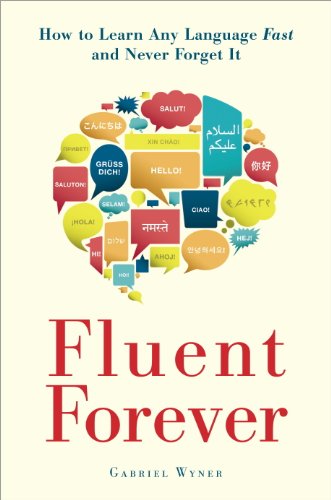
Fluent Forever, by Gabriel Wyner
For anyone trying to learn a foreign language, the biggest challenge is keeping the memory. Often, learning a new language entails having to learn too many words. There are also very many rules that surround different languages.
As you learn a new word, you likely forget another or two that you learned before. With all that, becoming fluent becomes an almost unattainable thing.
However, this book takes the memory challenge heads-on. It begins by providing essential aspects of pronunciation. You will discover how to retune your ears to transform all the foreign sounds you encounter into more familiar ones.
With the book’s sophisticated spaced-repetition techniques, you will be helped in memorizing hundreds of words for every minute of every day applicable for a month.
This book is like a brain hack because it applies neuroscience insights in linguistics. That makes it even more exciting to create an enjoyable and efficient way to learn a foreign language.
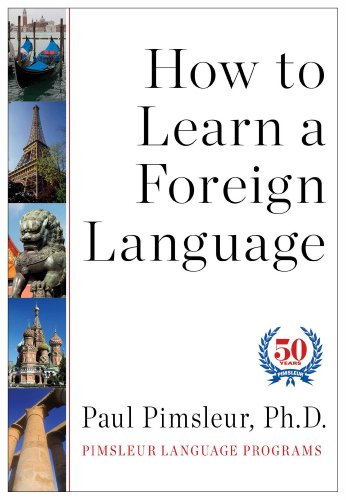
How to Learn a Foreign Language, by Paul Pimsleur
Every learner of a foreign language needs to know that language functions contextually. The main reason for learning is the satisfying effect on our particular situation or environment.
One of the main problems surrounding language learning is the rational and theoretical analysis of a specific language’s structure. That is where many get it wrong and end up side-tracked.
Paul is the creator of the Pimsleur Method, and in this book, he shows how anybody can learn how to speak a foreign language.
You will learn how to learn grammar and vocabulary seamlessly and practice word pronunciation. There are also details about how to tackle translations and look for the best learning method or teacher.
The key to learning is learning organically, keeping it simple, and being direct, and Paul breaks that down piece by piece. He demystifies the entire process by drawing essential insights from his language learning trials and tribulations.
He also offers learners advice about overcoming different obstacles when learning a new language.
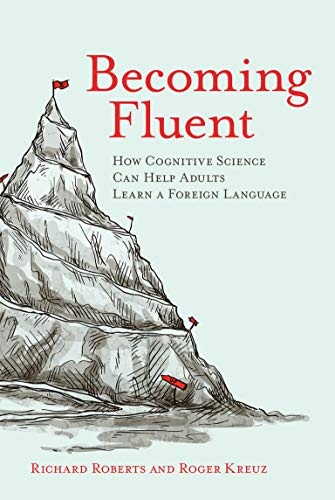
Becoming Fluent, by Richard Roberts
Adults looking to learn a foreign language tend to get discouraged, primarily due to the belief that children can do it faster. As soon as they begin learning a language, they also may get dismayed, whereby the employed methods for children are not working for them.
This book gives significant input about how adults can help themselves and what they can do. The insights the author provides are drawn from cognitive science and psychology, and they aim at showing adults that they too can master a foreign language. What adults need to do is not try and learn like children.
The book presents evidence that adults may even be quicker learners than children. The advantages children have over them are that they can easily acquire a native accent and do not struggle with substantial self-defeating anxiety.
Adults, however, have a tremendous advantage because they better understand their mental processes, grasp pragmatics better, have a social advantage, and have the know-how to employ language in doing various things.
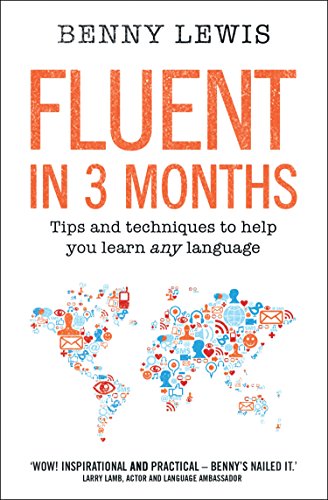
Fluent in 3 Months, by Benny Lewis
Like the title suggests, Fluent in 3 Months offers a blueprint about how to learn a language in three months, despite your age. The author speaks many languages that he has taught himself personally.
His approach differs from the approaches used by other language learning programs. He urges learners to avoid studying, not focus on grammar, but instead focus on starting to speak from the very first day.
The argument driven in the book is that learners of new languages do not have to have an excellent memory to succeed. They also do not have to possess an inherent “language gene” to improve and learn faster.
You will find several long-held beliefs about language learning, all of which the author has excellently debunked. The key to learning any new language is to put in the work with more practice.
This book will help you save time prioritizing the wrong things about language learning by enlightening you on what to focus on, when, and how.
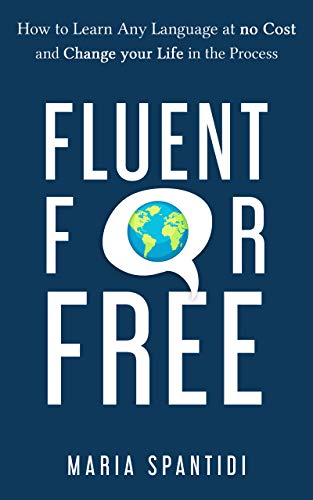
Fluent For Free, by Maria Spantidi
If you are tired of constantly spending money on language learning, check out this book. You also need it if you strongly feel that everyone else can succeed in learning a new language except for you, or if your journey has simply been frustrating.
Fluent For Free is a practical book that will debunk the misconception that you must pay money to learn a language. It also challenges the belief that learning a new language is for the talented and intelligent folks.
The book will teach you how to learn a new language all by yourself thoroughly and how you can come up with a routine that will give you the best results.
Additionally, it shows you how you can leverage your everyday friend, the internet, to help you master the language of your choice and suggests other resources you don’t have to pay for.
You will be equipped with different methods you can choose and be encouraged to become your journey’s leader. Find out what learning style best suits you, have fun, and unlock your full potential.
Conclusion
If you are trying to learn a new language, you need to consider our recommended list of books about language to gain essential insights for your linguistic journey. They have handy tips, and some will also give you a motivational approach.
If you are looking for English learning books (ESL), check out our article here.
